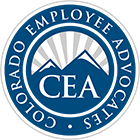If you are an employee in Colorado, you may be experiencing discrimination and either not realize that it is happening or understand that you are the target of discrimination in the workplace but are not aware that the discriminatory behavior is illegal. According to the Colorado Fair Employment Practices Act, it is not legal to discriminate based on color, race, religion, national origin, creed, sex, ancestry, age, sexual orientation or mental or physical disability.
The statute has been in place for a long time but it was amended recently so that the employee who was the target of discrimination had time to recover damages that were economic and non-economic, punitive damages from their employers. That statute includes businesses that have fewer than 15 employees and who are found to have discriminated against any member of a protected class.
How do I go about filing a claim for discrimination in Colorado?
There are two different ways that you can file a discrimination claim. First, you can file with the Colorado Civil Rights Division, or CCRD. The second way that you can file a discrimination claim is with the Equal Employment Opportunity Commission, or EEOC. There is a work-sharing agreement between those two agencies.
The agencies work together to process claims. You should note that you don’t need to file a claim with both agencies; however, you should indicate that you want whichever agency you sent the claim to should cross-file with the other agency. If you do that, the process should go relatively quickly.
What does the statute cover?
The anti-discrimination statute covers businesses of all sizes. If the business has fewer than 15 employees, it is best to file with the CCRD. The EEOC is a federal agency and thus, enforces federal law, which only applies to businesses of more than 15 employees.
Once you have filed a claim, you can check the status of your claim. The EEOC is on a digital system, which is very user-friendly and can be accessed through the EEOC’s website. For those who don’t have or use a computer, there is also a telephone number.
What can I expect after I file my discrimination claim?
After you file the claim, you will receive a number that is associated with the claim. Your employer will receive a copy of the claim within 10 days and the agency will do one of the following:
- You and your employer will be invited to a mediation session
- Your employer will be asked to give a written response to your claim and answer relevant questions. At that point, the investigator will handle your claim.
- If the claim was not filed on time, it will be dismissed. It will also be dismissed if the agency has no jurisdiction over that particular claim.
If the agency feels that the claim has merit, they will investigate and may interview witnesses and generate additional documents. After the investigation is finished, you and your employer will be informed of the result of the investigation. If the result is that no discrimination occurred, you will receive a Notice of Right to Sue. That notice allows you to file a lawsuit in court.
On the other hand, if the result is that discrimination did occur, the agency’s staff (or the Department of Justice staff in some cases) will make a decision about whether the agency should file a lawsuit in court. The timing of the investigation depends on many different things, including the volume of information and how long it takes to analyze it.
Seeking legal counsel from a Colorado employment lawyer
You are dependent on your job to keep your life running smoothly, not to mention all of the other positive benefits that you get from your job, such as intellectual fulfillment, satisfaction, and a whole lot of mental and emotional benefits. However, if you have been the victim of discrimination on the job, you may want to consult with a Colorado employment lawyer who can help you to understand the legal process as well as how to go after the compensation that you deserve and that you need. Your employer be made accountable for their actions so that you can provide a good life for yourself and for your family.

